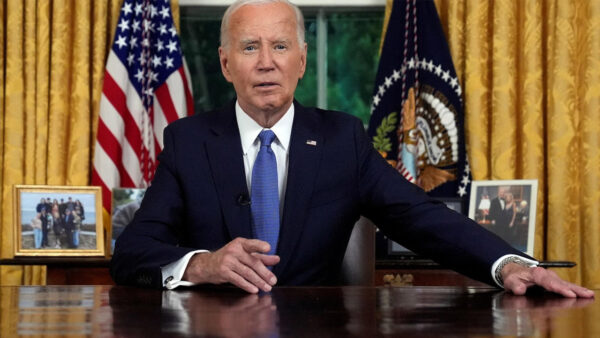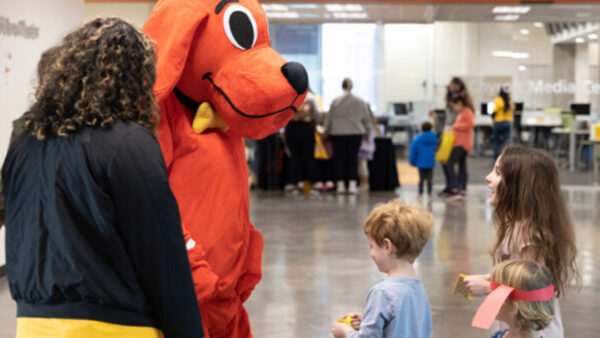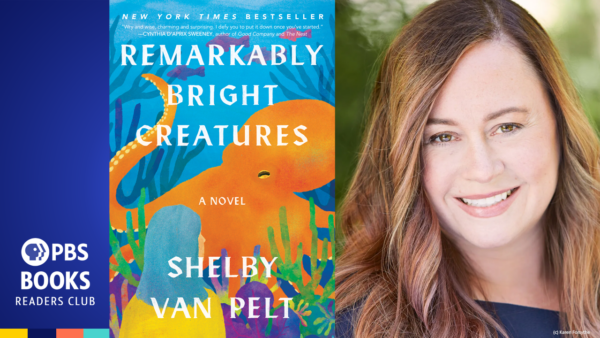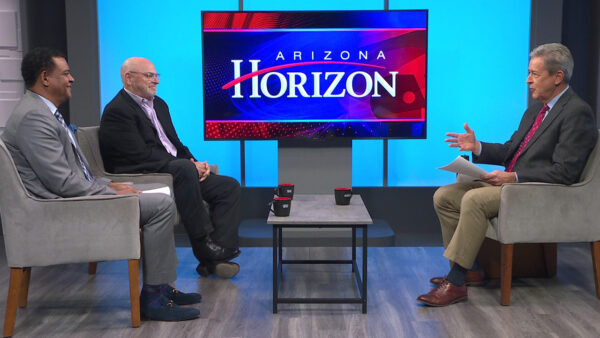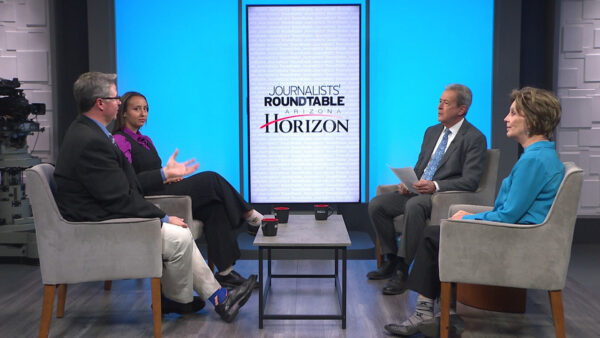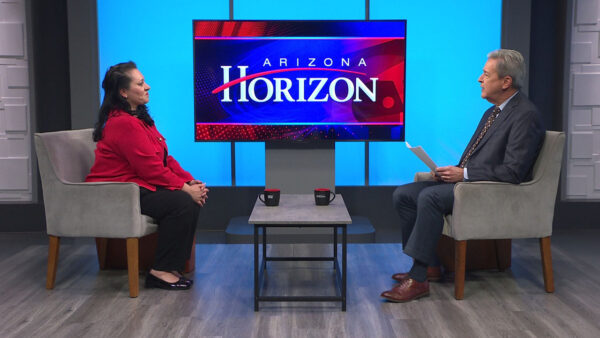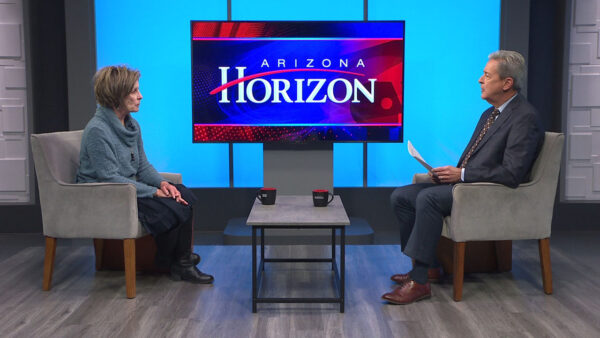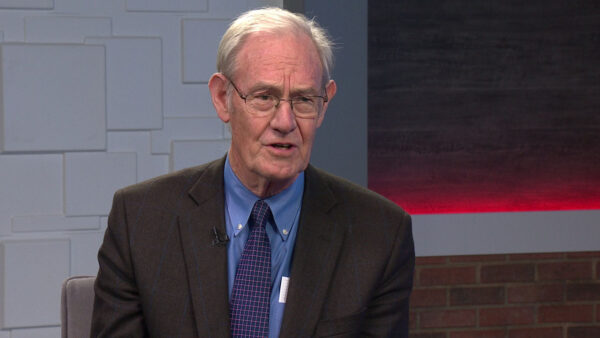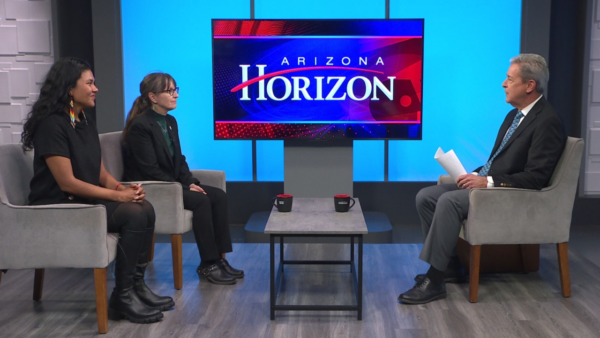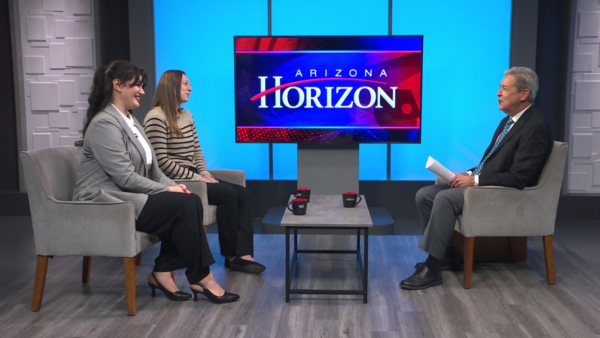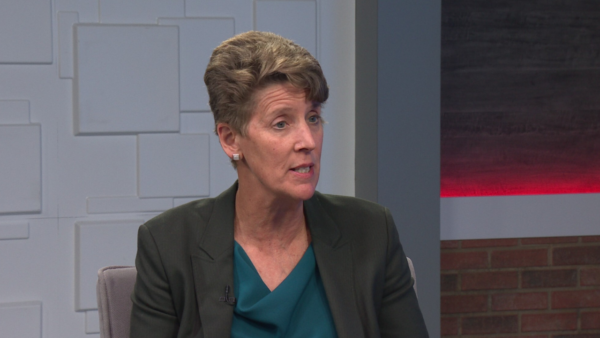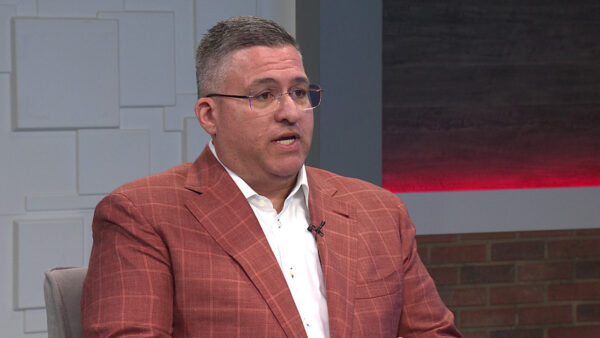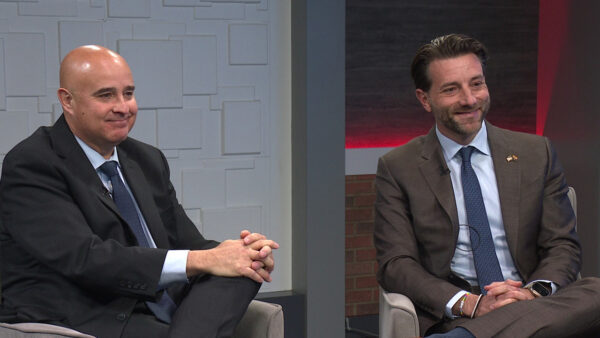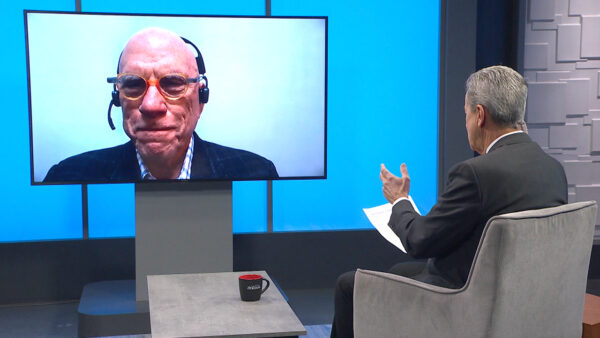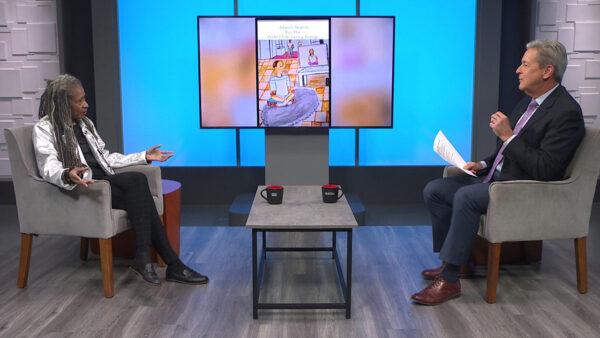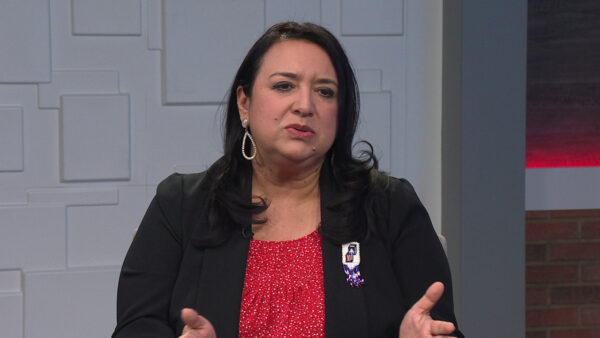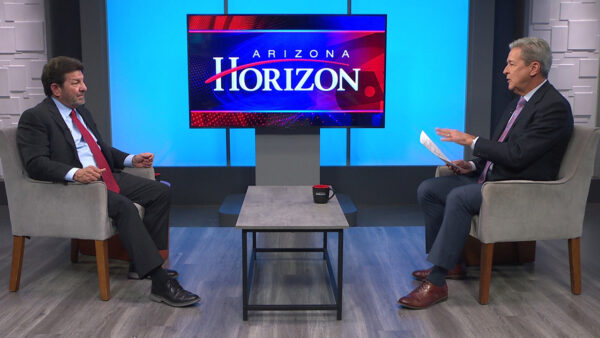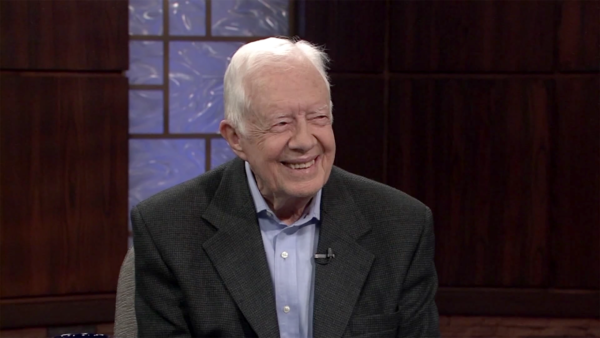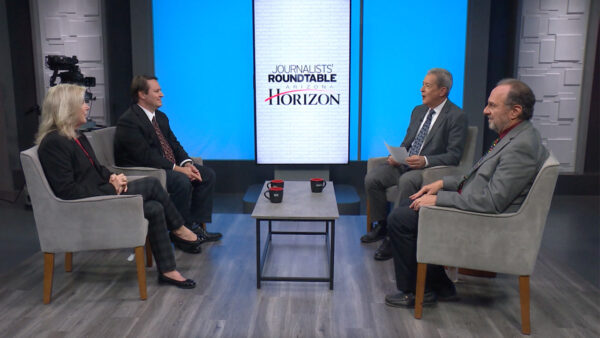Advocates for presidential candidate Donald Trump are calling foul because candidate Ted Cruz received pledges from more Arizona GOP delegates over the weekend even though Trump won the popular vote in our state. Dan Nowicki of the Arizona Republic will explain.
Ted Simons: Coming up next on "Arizona Horizon." Donald Trump advocates are upset. Tonight, the Miranda warning on the 50th anniversary of the ruling and bio science experts. Those stories next, on "Arizona Horizon."
Video: "Arizona Horizon" is made possible by the friends of Arizona pbs.
Ted Simons: good evening and welcome to "Arizona Horizon" I'm Ted Simons. The circuit court reversed the federal law on the raids. Though the raids could conflict with federal laws, it shouldn't be an issue when it is applied to U.S. citizens and permanent residents.
Ted Simons: state legislative leaders have asked lawmakers to be ready for a budget proposal. They have been working on the budget for all week, some people asking for more money for schools.
Ted Simons: well, this weekend's state republican convention resulted in angry members for Donald Trump. Here to explain what happened is the Arizona republicans reporter Dan Nowicki. Thanks for being here.
Dan Nowicki: It was one wild Saturday out in mesa. What happened was, there was a new system of online voting. The voting didn't go the way the trump team wanted it to and to say they were angry is an understatement. They were very furious and Donald Trump's person threatened. It's not clear what they're thinking about, what kind of action they're going to take.
Ted Simons: These are at-large delegates which means these are delegates that would be free to whatever -- everyone would be free -- if trump doesn't get that first one.
Dan Nowicki: They must support trump because he won on March 22. Second ballot, if it's a contested convention, now probably -- I guess, maybe 40 out of those 58 are Cruz loyalists so they could switch to Ted Cruz. Or another candidate.
Ted Simons: And it sounds as though Cruz and Kasich, they joined forces, became as one and kind of went around trump.
Dan Nowicki: and that tells the story, Jeff was fuming that trump got more clicks. The Kasich and the Cruz slates were almost identical. There were only two names of the 28 delegates that were different on each one. Basically, they did combined. They called it collusion. That is what happened, probably is the Cruz and Kasich combination outdid trump.
Ted Simons: I read your story, too about this.
Dan Nowicki: there were a lot of glitches. It stalled in the middle of voting. There was bandwidth problems. They took to the microphone and told everyone to get off the WiFi and get on their personal carriers on their phones so they could free up some bandwidth so it didn't go smoothly. I don't know if that means there was any fraud or it was rigged as some of the trump supporters are alleging.
Ted Simons: you mentioned Jeff at the helm there and it sounded like he was absolutely livid. Councilmen, they are trump supporters.
Dan Nowicki: They were somehow left off the trump slate. There was a fourth alternative called a unitive slate. It had the opposite effect of unity because it seemed like neither side trusted the unity slate. The governor were on the unity slate but they weren't on the trump slate and they were saying people voted the trump slate, you know, didn't get --
Ted Simons: it sounds awfully confusing and a lot of folks were very upset. The governor said she was cheated.
Ted Simons: did she really?
Dan Nowicki: I got cheated and the people of Arizona got cheated.
Ted Simons: Dewitt tried to blame the governor?
Dan Nowicki: That shows you how hot tensions were. They were both on the same trump side and got into a shouting match because dewitt was suggesting the staff had something to do with it. They said, we shouldn't probably go there. They got into a back and forth, at their own news conference.
Ted Simons: Scorpions in a bottle here.
Dan Nowicki: They were boiling over here.
Ted Simons: If this is the way it was, this weekend in mesa, what in the world is going to happen at the national convention?
Dan Nowicki: I think everyone is bracing for the worse. Not to mention, the arguments on the inside, there's going to be all sorts of protests. On the outside, so, hope to be there.
Ted Simons: So, the supporters of the guy who wrote, art of the deal, were upset because the two other campaigns worked out another deal?
Dan Nowicki: I think that's the gist of the story.
Ted Simons: Thanks for joining us.
Dan Nowicki: Thanks, ted.
Ted Simons: It's been 50 years since Arizona's case against Miranda. A right for those interrogated by law enforcement. With us is Robert McWhirter and Sam Myers, a criminal residing judge. Good to have you both here. The Miranda warning. What is it that exactly?
Robert McWhirter: You have the right to remain silent. Miranda came in a context of several cases in the Supreme Court and it's a remarkable case because of what it says about society. Miranda is the only Supreme Court case -- I've checked this out -- that's a verb. It's the only case in our history that's become a verb, to mirandize. And to my knowledge, it's the only Supreme Court case that's become a verb. The amazing thing about Miranda -- this is important for us -- you take a two-mile circle around this studio, the entire case played out two miles from where we are sitting.
Ted Simons: 50th anniversary of the ruling. This is custodial interrogation, correct?
Sam Myers: It is. It's probably the most misunderstood part. Most people think, if I have an encounter with a law enforcement officer, the officer must advise me of my rights and that's not what the Miranda decision says. It says that if the police want to interrogate a person who is in custody, they must advise the person of their right and get a knowing, intelligent and volunteer waiver of those rights.
Ted Simons: and do so at the outset?
Sam Myers: Yes.
Ted Simons: it's the whole idea of the freedom -- the kind of freedom the suspect has, correct?
Robert McWhirter: The interesting thing about Miranda is it's a little unclear whether it's a Fifth Amendment right or a sixth amendment right to a lawyer.
Ted Simons: It sounds like it's both, isn't it?
Robert McWhirter: The court has jumped on the Fifth Amendment horse or the sixth amendment right.
Ted Simons: Why did the court decide the way it did?
Sam Myers: Well, the court had been making small strides in the second half of the 1900s and was beginning to recognize certain rights and bob is certainly more a historian than I. The court recognized that in capitol cases, a state defendant will have the right to council. That eventually broadened to all criminal defendants and then -- even if indigent and it extended outside of the courtroom to a -- an initial encounter with a law enforcement officer.
Ted Simons: The court again -- you talked about the Fifth Amendment rights. Before the Miranda case, there was an admission there but because he wasn't warned prior, because he didn't have council with, admission no good.
Robert McWhirter: There was more than admission, there was a signed, written out concession. This begins with pal versus Alabama, 1932. That was the Scottsboro boys who were charged with the rape of two white women. The Supreme Court said you have a right to a lawyer in a capitol case. This is the connection to a lawyer. This is the first time that the Supreme Court applied the sixth amendment. This is 1932. Nothing happens for 30-odd years until everybody gets a lawyer, no matter if they can afford one or not, that's 1963. In 1964, Escobedo was accused of killing his brother-in-law and he's in interrogation for 14 and a half hours. His lawyer is out in the police lobby saying, let me into my client and the police are keeping them separate. 1966, that's when Miranda comes out.
Ted Simons: An impact on course cases and police work.
Robert McWhirter: Huge.
Sam Myers: Huge and to this day, questions are still being posed and answered in regard to Miranda. It seemed to be a very clear-cut ruling involving custodial interrogation but then the questions came, well, when is somebody in custody? And what questions -- when does questioning become an interrogation? When somebody waives his right to council or waives his right to silence, what does the waiver need to look like? How clear does the waiver need to be? These are questions that still happen all this time.
Ted Simons: In this day and age -- I remember the old police shows. You have the right to remain silent. Do they still do that?
Sam Myers: Yes.
Sam Myers: Adam 12 still exists.
Ted Simons: Yes. 5-4 opinion.
Robert McWhirter: The dissenting opinion was from justice Harlan and justice white. They were basically saying the court has gone too far. There's nothing in the actual constitution. There's no that says you have a right to remain silent. It says, by the Fifth Amendment, you have the right to from self-compelled in crimination. Now, there was a lot of backlash to Miranda and dirty hairy movies. Congress passed a statute saying the court's don't have to follow Miranda. The department of justice never tried to enforce it and it wasn't until the year 2000 in a case called Dickerson that the court deals with it. Richard Nixon put on William and he was supposed to take care of Miranda, get rid of it. In the year 2000, they dealt with Dickerson. It was written by chief justice William, upholding Miranda so the guy that was put on the court that was supposed to get rid of it, got on the court and upheld Miranda.
Ted Simons: With that in mind, last question here, part of the culture, does it remain part of the culture? Will it evolve again?
Sam Myers: Well, the Miranda warning will probably not evolve. It has stood for 50 years now and it's really an accepted premise and part of law enforcement and prosecution around the country. So, while I think interpretations will evolve, I think the Miranda warning is a solid part of our culture now.
Ted Simons: All right. Great conversation. Thanks for joining us, I appreciate it.
Robert McWhirter: Pleasure.
Ted Simons: The Helios scholars program is marking its 10th anniversary. It helps to train a new generation of scientists, researchers. Here now is Dr. Jeffrey Trent of T-Gen. Paul Luna, president and ceo of the Helios foundation and Carly Benford, a 2010 alum. Give me a better definition.
Jeffrey Trent: Great opportunity to bring students into a bio medical research environment, see if they can find a home in the laboratory in the type of work we do in association with patients, wonderful opportunity to bring this in place here in Arizona.
Paul Luna: Helios, we believe that every student needs to be successful in post-secondary education so to partner with T-Gen and to allow students from our state to engage in a meaningful internship was the driving factor behind the partnership. This helps students like carly find their way into this educational space and opportunity to help insure that they will have places to be here in Arizona.
Ted Simons: Carly, how did you find your way?
Carly Benford: I find my way through a family friend who is an investigator at T-Gen.
Ted Simons: What did you expect?
Carly Benford: I expected to come in and learn more about science. My hope was to see if this would be a career choice for me.
Ted Simons: And?
Carly Benford: It was. I was able to be introduced to a career path and a career as a clinical research coordinator where I combine my research and helping cancer patients.
Ted Simons: Do you have a specific project? Was it eight weeks?
Jeffrey Trent: They get embedded into a research program and get a sense of whether this aspect of bio medical science can make sense for them. Earlier data looks like 60% are staying in the bio medical sciences that have gone through this internship program and we think it's important.
Ted Simons: Genetics, a big factor here?
Jeffrey Trent: T-Gen's role is critical and we believe it is one of the reasons there have been so many applicants.
Ted Simons: paid intern over the summer?
Paul Luna: absolutely.
Ted Simons: As far as applicants, what are you looking for?
Paul Luna: We're looking for the best and the brightest, which Arizona has a deep talent pool of students who are capable in engaging. We were purposeful when we partnered with T-Gen in that this would be a comprehensive, fully-engaged program and a paid program and insuring every student has the opportunity to engage and apply for these in internships. We want the students who are really looking to potentially make this type of dynamic research a part of their future and that's what we try to do.
Ted Simons: Your research project, what were you involved in?
Carly Benford: I worked in a cancer lab in T-Gen and it was about an ovarian cancer study.
Ted Simons: Did you work with a mentor?
Carly Benford: I did and there were others where we collaborated.
Ted Simons: These projects, we're talking cancer, genetics and real-world situations.
Jeffrey Trent: There's no doubt that the talent pool in Arizona is significant and some of these students are developing programs and applications that allow us to make our work faster and certainly more complete. The opportunity for them to work on infectious disease and cancer and diabetes. It's been remarkable.
Ted Simons: Are you seeing more interest in the scientific aspect? Straight research, physicians? What seems --
Jeffrey Trent: it's a great question. it is all over the board. Just as carly mentioned, it opens new channels for career opportunities. This is extraordinarily competitive, nearly 500 students applied for 45 spots. It's an opportunity we really -- we have seen full bright scholars, Coca-Cola scholars and kids -- one that has finished medical school training at Harvard and at Mayo Clinic. Hopefully it will anchor kids back to Arizona.
Ted Simons: Career options are fantastic, but the careers in Arizona helps all.
Paul Luna: Developing the talent pool in our state. So by definition, in order to apply to this, it means you're a resident of Arizona or a student that's studying in one of our educational institutions and a unique opportunity that will give them an ability to become engaged meaningfully, doing meaningful research and learning a lot about themselves. As carly is a great example, they can go through the program and she's working at T-Gen. She'll have her on scholars she'll be working with.
Ted Simons: As far as your career options, I mean, is that what Paul mentioned? Does that make sense to you?
Carly Benford: Yes. So, career options are diverse in science and not only clinical research, so I have a lot of options. Hopefully a bright future at T-Gen.
Ted Simons: I was wondering though, some of these things sounds so deep in the weeds and most of us wouldn't understand 9/10 of it. Learning scientific writing, learning how to present your research. How to make sense of what you're doing.
Carly Benford: Yeah, the Helios team at T-Gen is great with putting on different workshops for students. We work on writing and symposium where you present your research project.
Ted Simons: communicating that is big, isn't it?
Jeffrey Trent: Absolutely. You have to articulate the effort you do.
Ted Simons: What we can expect for the next 10 years, what do you think, Paul?
Paul Luna: What you're seeing is a the ability for us to partner together. One of the fundamental principles of Helios is we do everything in partnership. We believe Arizona has a dynamic future and these are the types of students that we're going to need in order to develop the type of economy in the state of Arizona that we're going to want for all of us to be successful and we have specific of what those students look like. They're all capable of succeeding and they do it every day and they do it as part of this internship.
Ted Simons: What do you see in the next 10 years?
Jeffrey Trent: One is at least half of the students we have are -- almost 30% are part of those that are underrepresented in the bio medical science, which include both females as underrepresented populations. We really do provide jobs and opportunity here in Arizona. I would argue again, we have a fantastic talent pool of outstanding students here in Arizona.
Ted Simons: I'm hoping we'll hear more from you in the future.
Carly Benford: let's hope so.
Ted Simons: Tuesday on "Arizona Horizon," we'll get a variety of views on how state charter schools are doing and can the qualities that allow non-profits to endure. 5:30 and 10:00 on the next "Arizona Horizon."
Ted Simons: that is it for now. I'm Ted Simons. Thank you so much for joining us. You have a great evening.
Video: "Arizona horizon" is made possible for the friends of Arizona pbs, members of your pbs station. Thank you.
